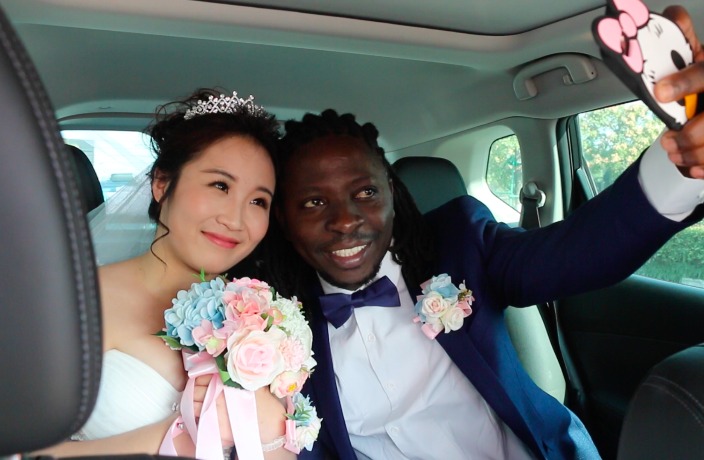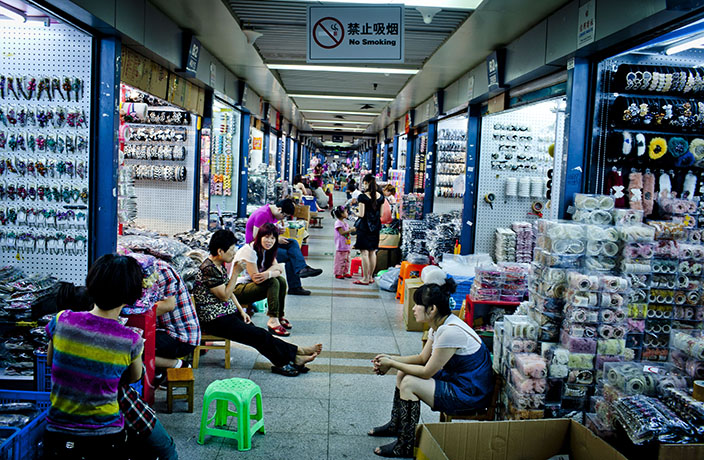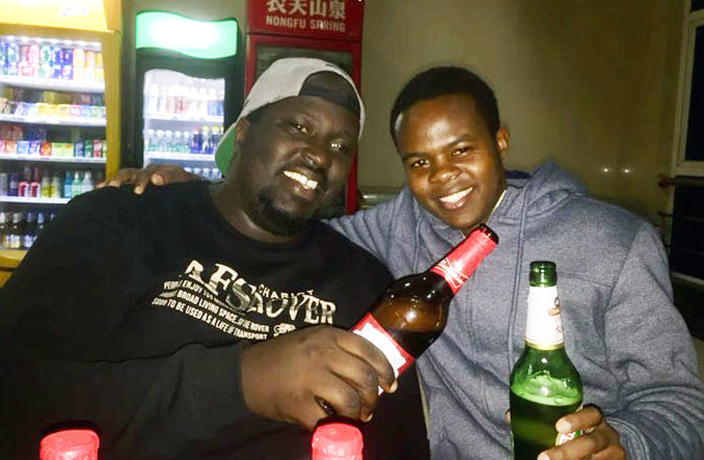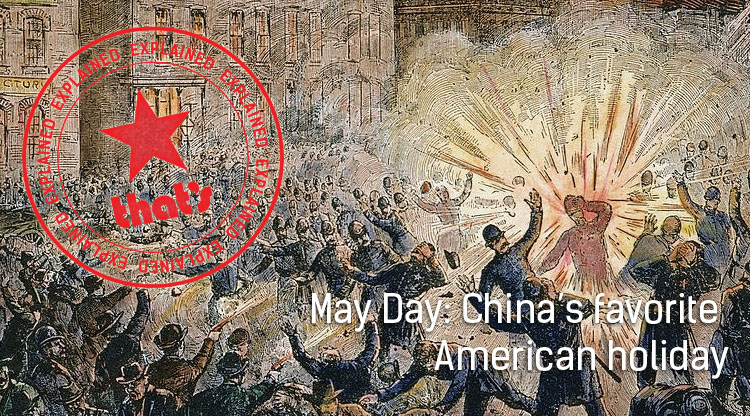From refrigerator magnets to Christmas tree ornaments, the city of Yiwu, Zhejiang is famous for its small commodity trade that sees billions of RMB worth of merchandise shipped to the farthest corners of the world each year. African nations are some of the city’s largest trading partners, and in 2015 alone, Yiwu exported more than 48 billion yuan of goods to the continent.
As a result of the ever-growing trading ties between China and the region, Yiwu has for years been home to one of China’s largest African communities. Local authorities estimate some 3,000 people from 50 African nations have settled in the city – though experts say the number could be 10 times as many.
Born and raised in Saudi Arabia to Somali parents, Hodan Osman Abdi first arrived here more than 12 years ago after her high school graduation. What was originally a brief visit prompted by her uncle, a longtime Yiwu resident, turned into a decade-long journey of academic pursuit that allowed her to acquire her bachelor’s, master’s and doctorate degrees, along with a mouthful of fluent Mandarin.
Since 2016, the researcher and lecturer at Zhejiang Normal University’s Institute of African Studies (IASZNU) and her colleague Zhang Yong have been working on Africans in Yiwu, a six-part documentary film that features the intimate stories of 19 African residents in their home away from home.
Speaking to us by phone from her office in the city of Jinhua, Abdi walks us through the film’s production process, some of the people she met along the way, and what life is like for her as an African Muslim woman living in China.

Hodan Osman Abdi and Zhang Yong behind the lens
Can you tell us where the idea of Africans in Yiwu came from? What do you hope to achieve with this project?
It actually came from my co-director, Zhang Yong, who did his PhD in African cinema studies. We first met through a friend at a conference a few years ago, and then reconnected at the launch of ZNU’s Center for African Film and Television Research in December 2015, which was when he first told me about the idea of making a documentary about the African community in China. The following March, the project was given the green light and I was asked to be a part of it due to my connection to the African community in Yiwu, where I’ve lived for most of the past 12 years.
What spiked my interest in the project was the desire to increase the presence of Africans in Chinese media. As China becomes more and more globalized, diversity needs to be seen as a positive thing for people to embrace.
How did you select your interview subjects? Besides their origin (Africa) and where they currently live (Yiwu), what other qualities do they all have in common?
We started with a pool of 50 people and narrowed them down to 19 in the final cut. We have people who lived in China from anywhere between a few months to 16 years. Throughout the two years of observations and interactions with them, we discovered a lot of commonalities between them. One of which was that they all came to China because they saw it as a rapidly developing country that offers a lot of opportunities for self development, whether it was through the acquisition of the language, gaining knowledge of the culture, or engaging in business here.

Harvey (left) singing with locals
Who are some of the most memorable characters in the film?
There are quite a few. The story of Harvey is interesting, as he came to China to learn Chinese, but found himself struggling to blend in with a bunch of college-age kids in the classroom (Harvey is in his 30s). He found refuge in the city square and connected with the seniors there through the common love of singing old Chinese songs, which became an unconventional way for him to pick up the language and culture.
Another is a romantic story between a Tanzanian young man named Yusuph and his Chinese wife. They’d been dating for six years, but the girl’s parents only found out about their relationship when they decided to get married. At first, they faced a lot of objection, but Yusuph, who’s fluent in Chinese, eventually won over his in-laws – the process from rejection to acceptance was quite touching to witness.

Yusuph and his bride on their wedding day
On the other end of the spectrum is the story of Zain, a Sudanese barbershop owner who married a young girl from an ethnic minority group. To this day, his wife’s family still refuse to speak to them, which is quite painful for her, because she doesn’t quite understand why her own parents would cut ties with her [because of her husband’s identity]. But like all of the characters featured in the film, they’re able to balance the struggles of their daily lives with the happiness. The scene with them and their son waving goodbye to us and riding off on their motorcycle is one of the most memorable and moving images of the film for me.

Zain and his family
You’re also one of the characters featured in the film. Can you tell us about your story arc?
I’m featured in the first of the six-part documentary, and the theme of that episode is ‘education.’ The day I graduated from my doctorate program was actually the very first day of filming. I remember there was a scene in which Zhang Yong asked about my biggest achievement since arriving in China, and I said, “Learning to drive,” which is something that women aren’t allowed to do in Saudi Arabia. [Note: Since September 2017, women in Saudi Arabia have been given the right to obtain drivers' licenses.]
As a Muslim black woman teaching at a leading university, I’m defying a lot of stereotypes. I’m not sure if I would be able to get to where I am today if I were to be in any other country. China has offered a lot of opportunities… [You learn to] manage the struggles with the fulfillment.
Struggles?
Oftentimes, locals make casual comments like, “Hodan, although you’re black, you’re very beautiful!” Things like that give me this sick feeling in my stomach, but you know they don’t mean any harm, and these comments are stemming from a lack of exposure to the outside world.
“As China becomes more and more globalized, diversity needs to be seen as a positive thing for people to embrace”
Where do you think this is coming from? And what can be done to change this?
It has to do with the way Africans are portrayed in the media – both Chinese and international. For decades, coverage of the region has always focused on the negatives – poverty, diseases, famine, war and instability. In order to change the image of Africa and its people among the public, I think the media should tell more human stories, rather than always just focusing on the sensationalized, attention-grabbing headlines. Additionally, more cross-cultural co-productions are also needed, as conversations surrounding the region are often very one sided.
Lastly, after being abroad for so many years, where do you consider to be your home?
That’s probably the toughest question to answer. Although I know I can’t stay here permanently, China is where most of my friends are, and the place that I miss when I’m traveling. I consider China as my second home, but as for my first home, I think I still need to find that.
Find out more about Africans in Yiwu here. All photos courtesy of Hodan Osman Abdi.




















0 User Comments